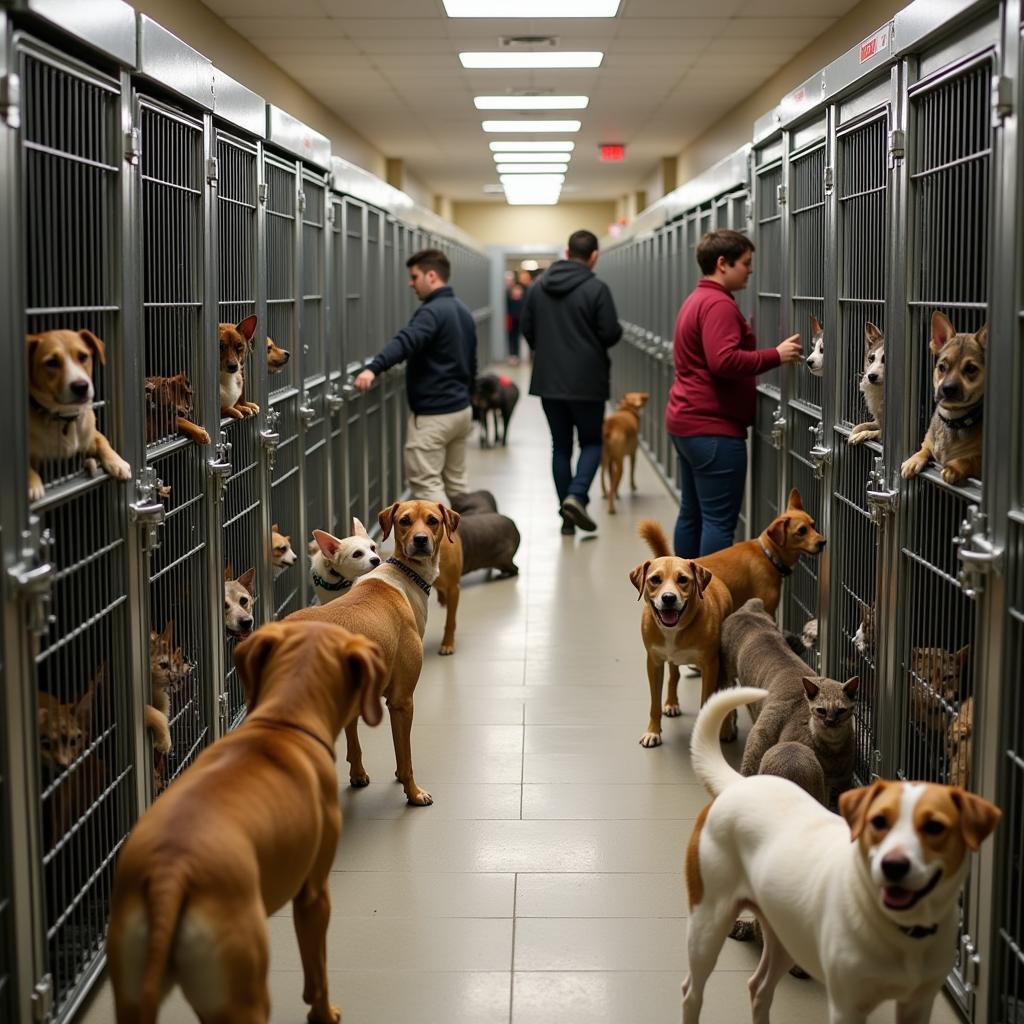The question “Are Humane Societies Kill Shelters?” often arises from a place of genuine concern for animal welfare. While the terminology can be confusing, it’s important to understand the distinctions between different types of animal shelters and their approaches to euthanasia.
Humane Societies, Animal Shelters, and Euthanasia: Unpacking the Terminology
Let’s start by defining some key terms:
- Humane Society: A humane society is a non-profit organization dedicated to animal welfare. Their services typically include adoption, animal cruelty investigation, and community outreach.
- Animal Shelter: This is a broader term encompassing any facility that houses and cares for stray, abandoned, or surrendered animals. This can include both public and private organizations.
- Open-Admission Shelter: These shelters accept all animals brought to them, regardless of health, temperament, or space limitations. Due to resource constraints, they may sometimes make the difficult decision to euthanize animals for reasons beyond medical necessity.
- No-Kill Shelter: These shelters commit to not euthanizing animals unless it’s medically necessary due to severe injury or illness. They often have limited space and may have stricter adoption requirements.
 Open Admission Shelter
Open Admission Shelter
Debunking the Myth: Are All Humane Societies No-Kill?
While many humane societies strive towards a no-kill model, it’s important to remember that not all humane societies are no-kill shelters. Some may operate as open-admission facilities, facing the same heartbreaking choices as other shelters with limited resources.
It’s crucial to research and understand the specific policies of your local humane society or animal shelter.
Factors Influencing Euthanasia Rates
Euthanasia is a deeply complex issue with no easy answers. Several factors contribute to the euthanasia rates in shelters, including:
- Overpopulation: The sad reality is that there are far more animals needing homes than there are available homes.
- Lack of Resources: Shelters often struggle with limited funding, staffing, and space.
- Behavioral Issues: Animals with severe behavioral problems may be deemed unadoptable, posing a risk to potential families.
- Medical Conditions: Animals with costly or untreatable medical conditions may face euthanasia if resources are scarce.
What You Can Do to Make a Difference
Every compassionate action counts when it comes to animal welfare. Here are some ways you can help:
- Adopt, Don’t Shop: Give a deserving animal a loving home by choosing adoption.
- Spay and Neuter: Help control the pet population by spaying or neutering your pets.
- Volunteer Your Time: Shelters are always in need of dedicated volunteers.
- Donate: Financial contributions can make a significant impact on a shelter’s resources.
- Foster an Animal: Open your home to an animal in need, providing temporary care and love.
humane society vs animal shelter
Choosing Compassion: A Shared Responsibility
The issue of euthanasia in animal shelters is a sensitive one, often leading to passionate discussions. Remember that respectful dialogue and understanding are crucial. It’s essential to avoid judgment and focus on collaborative solutions that prioritize the well-being of animals.
 Volunteers at Animal Shelter
Volunteers at Animal Shelter
By working together with compassion and empathy, we can create a brighter future for all animals.